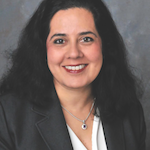Karen A. Hawley, MD, an otolaryngologist in Albuquerque, New Mexico, also cited limited access to primary care physicians and COVID-19 symptom crossover, adding that patients often neglected care or were denied a clinic visit during the pandemic. Access was challenging throughout 2020 and 2021, “So people are coming out of the woodwork needing help for issues that may have been more easily managed if they hadn’t waited a year or two to be seen,” such as head and neck cancer. (For more information on head and neck cancer guidelines, see the sidebar “Head and Neck Cancer Care.”)
Explore This Issue
August 2022Managing the Trend
To cope with the increased demand for otolaryngologic services, some practices are increasing the use of advanced practice providers (APPs), such as physician assistants and certified registered nurse practitioners, for primary care-type visits.
“One of the enticing things about working in otolaryngology is the diversity of a practice type,” explained Dr. Hawley. “It’s a true mix of medical and surgical problems. Our residency training and true subspecialty expertise, however, are geared toward surgical management and procedures. Much of what we do in clinic could be managed by a nonsurgical physician.” She added that many practices use APPs who are trained by otolaryngologists to help with simple conditions such as recurrent otitis media, sleep-disordered breathing, sinus complaints, globus, and dysphagia.
[Medical otolaryngology fellowships are] an excellent opportunity to build up on the knowledge base and skillset of well-trained family physicians or internists. —Sujana S. Chandrasekhar, MD
Other otolaryngologists are opening extra clinic slots for patients with urgent conditions, such as those with head and neck cancer or sudden sensorineural hearing loss. “We’re seeing more patients individually to try and meet demand,” Dr. Brown said. “We continue to add advanced practice providers within our practices to help meet the demand for ambulatory care. While this strategy isn’t embraced by everyone, it’s very popular for patients who appreciate having greater access to care.”
According to Dr. Brenner, the approach needs to consider the context, understanding why such challenges are arising and the options available to the practice.
“Simply trying to accommodate the added load through extra workload is unlikely to be sustainable over the long term,” he said.
“There’s a need to look upstream at what’s causing the change in practice,” Dr. Brenner noted. “The trend is structural and therefore likely requires structural solutions. Otolaryngologists can create more stringent referral criteria and prioritize care, but these are temporizing measures that will neither stem the tide of new patients nor allow for timely access to care. A different approach, expanding the practitioner base, is needed.”
